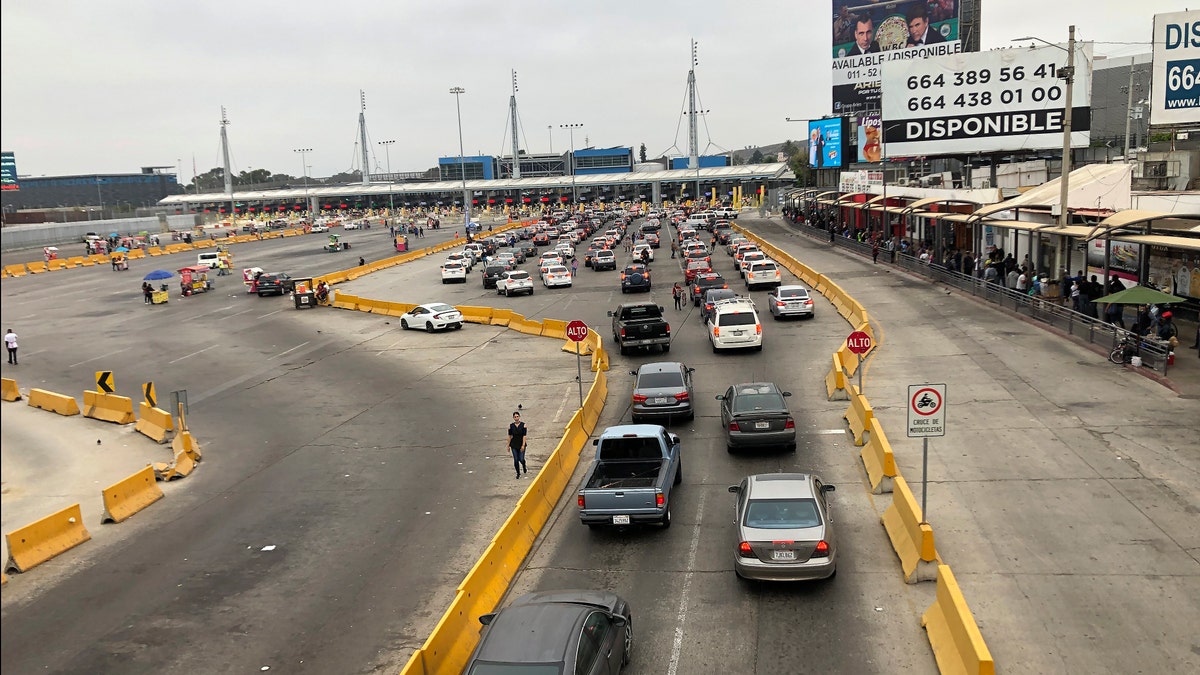Fox News Flash top headlines for July 27
Fox News Flash top headlines are here. Check out what's clicking on Foxnews.com.
Border agents operating at some U.S. ports of entry, airports and shipping ports are facing new limits regarding their ability to confiscate travelers’ personal electronic devices, according to a report.
In a decision reached in June, the San Francisco-based U.S. Court of Appeals for the Ninth Circuit all but eliminated agents’ ability to access people’s cellphones and laptops without a warrant, according to Border Report.
The decision – which applies only to the western U.S. states that lie within the Ninth Circuit’s jurisdiction -- effectively places limits on law enforcement in those areas to seek evidence of crime, the report said.
US BORDER AGENTS IN DETROIT SEIZE MORE THAN A TON OF MARIJUANA NEAR CANADIAN BORDER
The ruling limits agents of U.S. Customs and Border Protection (CBP) to searching only for digital contraband, such as child pornography, the report said.
Ev Meade of the Trans-Border Institute at the University of San Diego, said the ruling appeared to be intended to rein in agents’ apparent overstepping of their authority regarding the confiscation of devices.
"Under the previous administration, officers kept a blacklist under homeland security and they blacklisted reporters, humanitarian workers and lawyers, and they seized their phones and laptops," Meade told the outlet. "It’s very reasonable to question the scope of these searches and to say you’re doing it under the pretexts of homeland security. The court clearly said no.

Cars wait in line to enter the U.S. at San Diego's San Ysidro border crossing on Tuesday in Tijuana, Mexico. (Associated Press)
"And have they actually shown it serves some compelling public purpose to have violated these people’s privacy?" she continued. "No, the government has not met the burden that there was some compelling public interest in violating people’s privacy."
CLICK HERE TO GET THE FOX NEWS APP
The case stems from a 2018 incident in which CBP personnel ordered a man to unlock and hand over his cellphone at the port of entry in San Ysidro, California, the report said. The traveler was a U.S. citizen and border agents had downloaded all his data, photos and contact information, according to the report.
Court filings said the man was among about 41,000 travelers to have their phones and/or laptops searched by agents between October 2018 and October 2019, according to Border Report.
The Ninth Circuit covers the following states: Alaska, Arizona, California, Hawaii, Idaho, Montana, Nevada, Oregon and Washington, plus territories Guam and the Northern Mariana Islands.







































